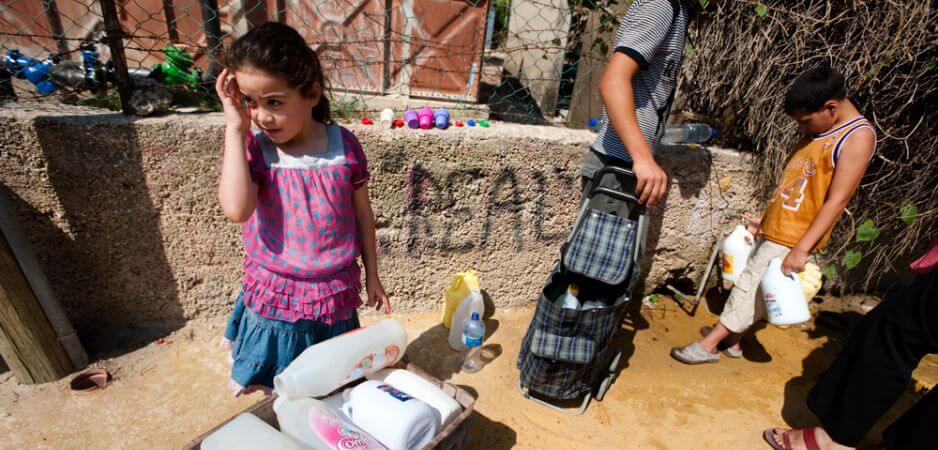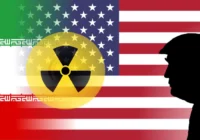In a game of control and oppression, Israeli authorities use water to exert their control over Palestinians.
In 2015, I spent a few months living in Palestinian refugee camps. Before my camp life, I thought I was quite informed about some things but less so about many others. Here are five lessons I learned.
1) Jerusalem may as well be in another country
I wanted to visit Jerusalem, so I asked my host to join me. With a surprised look on her face, she told me she couldn’t. She would have to apply for a permit, wait months for the Israelis to get back to her, and she was certain the response would be a no.
“Ninety-six percent of permits are rejected,” she said, and she had no intention of entertaining them with a request.
I felt silly. I should have known this one. I never went to Jerusalem on that day. I felt guilty holding a passport that clocked thousands of miles around the world while my hosts and neighbors couldn’t drive ten minutes into Jerusalem—East Jerusalem, a place still considered by the international community as Palestinian land.
2) Children face the darkest hours awake
The children in the camp sometimes played outside until 5:30am. They would often spend the time sweeping the streets, while other times they would decorated them for festivities. One day I asked my host why they stayed awake so late. “Camp raids usually happen at night,” she said, “and when raids happen, somebody usually dies.”
I learned that the children screaming and playing outside my window late at night were facing the darkness—and whatever surprises it may bring—with their eyes wide open. I felt less mad about my lack of sleep, knowing the brave children outside were seeing darkness to the door.
3) Wearing a bandana can get you in trouble
The first time my host saw me wearing a bandana, she told me, “Take that thing off! You look like a settler.” Surprised, I told her it was just a headpiece worn by many. “Look around you,” she said. “You’re in a refugee camp.”
In this concrete jungle—where death and despair both reside, sometimes eating from the same plate—I learned that something as insignificant as a bandana could pose a risk to both the wearer and to the residents of the camp who’ve never had a positive encounter with an Israeli settler. From then on, whenever I wore it, I folded it up so it was only a headband.
4) You can play water games
Not the fun kind with water balloons and water guns, but the deadly kind. Water is severely restricted. Every house in the refugee camps and Palestinian Territories has a water tank on the roof, or sometimes in the garden if there is one, to collect and store water. The Israelis who control the water release it once or twice a week, but there have been occasions where it’s been less frequent, with reports of weeks of dry taps.
We frequently checked the taps on the days that water was released, and we filled the tank, watered the plants and did most of our washing. Water was never available for the whole day, only a few hours. If you were outside and/or somehow missed the opportunity to fill your tank, you would wait until the next time it was released, and instead ask the neighbors for some in the meantime. Households with more people often ran out.
The nearby settlements all had free access to water. One way to tell if you’re in a Palestinian area or an Israeli settlement is to look at the rooftops: If there are no tanks on the roofs, it’s a settlement.
In a game of control and oppression, water is another source that Israelis use to exert their control over Palestinians.
5) Ghosts hang on the walls
Don’t ask about the pictures hanging on the walls in the homes of refugee camps—they’re often dead people—unless you are prepared to hear their stories.
Conversations will suddenly take on a sad tone as Palestinians tell you about their loved ones and explain how they’ve died—martyred they will often say. And almost every home has a martyr, sometimes many.
In the living room of one elderly lady, smiling pictures of her dead daughter and dead son hang on the walls. In her daughter-in-law’s house, more photos of other dead family members look at you from the walls. They were all killed during the Second Intifada.
The views expressed in this article are the author’s own and do not necessarily reflect Fair Observer’s editorial policy.
Photo Credit: Ryan Rodrick Beiler / Shutterstock.com
 We bring you perspectives from around the world. Help us to inform and educate. Your donation is tax-deductible. Join over 400 people to become a donor or you could choose to be a sponsor.
We bring you perspectives from around the world. Help us to inform and educate. Your donation is tax-deductible. Join over 400 people to become a donor or you could choose to be a sponsor.
Support Fair Observer
We rely on your support for our independence, diversity and quality.
For more than 10 years, Fair Observer has been free, fair and independent. No billionaire owns us, no advertisers control us. We are a reader-supported nonprofit. Unlike many other publications, we keep our content free for readers regardless of where they live or whether they can afford to pay. We have no paywalls and no ads.
In the post-truth era of fake news, echo chambers and filter bubbles, we publish a plurality of perspectives from around the world. Anyone can publish with us, but everyone goes through a rigorous editorial process. So, you get fact-checked, well-reasoned content instead of noise.
We publish 2,500+ voices from 90+ countries. We also conduct education and training programs
on subjects ranging from digital media and journalism to writing and critical thinking. This
doesn’t come cheap. Servers, editors, trainers and web developers cost
money.
Please consider supporting us on a regular basis as a recurring donor or a
sustaining member.
Will you support FO’s journalism?
We rely on your support for our independence, diversity and quality.






